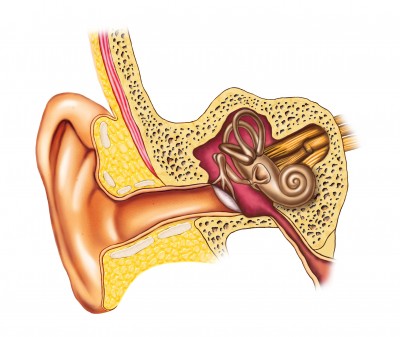It's no secret that a lack of gravity can be as disorienting as it is fun. When the middle ear cannot tell up from down, it can make you nauseous until you're used to it. However, can microgravity affect your ability to think?
That's beenthe topic of many studies, outlined in this New Scientist article by Anil Ananthaswamy, which I found presented in whole on the Transhumantech blog. Go there to read it, because it's very interesting, but let me give you a few highlights.
Our sense of balance is tied to the vestibular system, which is part of your inner ear.
So, all very nifty, but what does this mean? "Space fog" is a known condition among astronauts and has been the culprit for accidents, like then the Progress capsule hit the Mir space station in 1997. This will be a particular concern when we start talking Mars missions, where humans will be years in microgravity far from home. Obviously artificial gravity would be the best solution. In the meantime, there's an "early warning" system aboard the ISS that can help astronauts know when space fog is affecting their abilities. The data it's collecting will help us learn whether the effects get worse with time or if the body adapts.
There are other interesting inventions mentioned in the article for helping overcome space fog, like when on moon-walks to keep astronauts from getting disoriented.









3 comments:
Either that or simply training astronauts to adapt in the same way we train students with Dyslexia. It doesn't matter how they see things, if they learn how to decode what they see.
The other idea is to simply build spacecraft from the POV of microgravity instead of from the POV of gravity. If we know that a square looks like a diamond in zero G then say, push the button with the diamond on it. When you have a square peg and a round hole,it's probably better to trim off the pointed edges than to just try and pound it into the hole.
Oops, Karina, this is Terri Main. I accidentally posted under my school gmail account.
Terri, that's an interesting idea. I wonder if they've looked into it?
I think they'll need more studies to see how widespread the problem is, and if it's similar among all astronauts. I hope someone's thinking about this when they start training astronauts for the Mars missions.
Post a Comment